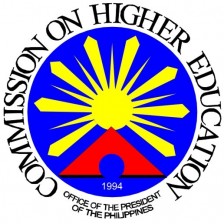
Western Samar Representative Mel Senen Sarmiento, Camiguin Representative Pedro Romualdo and Manila Representative Rosenda Ann Ocampo questioned why CHEd allowed educational institutions’ expensive field trips during the Committee on Higher and Basic Education’s joint hearing.
During the hearing, they constantly prodded Engineer Ronaldo Liveta, CHEd’s officer-in-charge for the Office of Student Services, for answers as to why they allowed institutions to continue with field trips that were too expensive and for some cases, did not seem relevant to the students’ studies.
A-Teacher Party-list Representative Mariano Piamonte Jr., reacting to Romualdo’s move for the committee to issue a directive preventing CHEd from allowing schools to have such activities, instead urged CHEd to fast track the issuance of their guidelines on such activities, saying there were instances that it was “good for students to get out of the campus and see the application of theories being taught.”
To which Sarmiento hit back, “how can they fast track? They are still drafting the guidelines.”
Gabriela Party-list Representative Luzviminda Ilagan said that CHEd was “moving at a snail’s pace. The opening of classes is just around the corner and it is difficult to change rules. We keep on returning to same concerns—we must have a deadline, we must move fast.”
“The draft has undergone public consultation and once ready, it will be presented for approval,” Liveta responded.
Committee chairman, Aurora Representative Juan Edgardo Angara, said they were not trying to put a stop to field trips but urged such activities be made reasonable and relevant for the students and their parents. “Our intention is not to stop (field trips) but to ensure that they are reasonable to the course, ensure there is fairness.”
He also asked why students and parents could not be informed of such fees during the payment of tuition fees, saying “dapat masabihan sila. Dapat makatarungan ang fees para puwedeng mapag-ipunan (the parents and students should be informed at once. The fees should be justifiable so they could save up for them).”
When Liveta told the committee they sought to inform students during their freshman orientation of plans for field trips, Ilagan said it was “unrealistic” as students could shift courses and changes in courses’ syllabi could be made later on.
She said it would be better for CHEd to monitor whether extracurricular activities were relevant to students’ courses and not to let “students and parents be taken by surprise.”
“Who doesn’t want to learn or look at new horizons? But it must be reasonable,” Romualdo said, pointing out that some private educational institutions charged students and parents for several fees under their miscellaneous fee, including registration, library, medical and dental, guidance, exam paper testing, school publication, cultural fee, computer laboratory fee, internet laboratory fee, ID fee, red cross, insurance, among others.
“Mahal pa sa tuition ang miscellaneous fee (Miscellaneous fee has become more expensive than tuition fee).”
Department of Education Assistant Secretary Elena Ruiz admitted they have observed “redundancies” and did “exert effort to confront schools why they charge such fees and had fees deleted. DepEd is seriously looking into that. We are trying to check how we can protect the interests of private schools and the welfare of the students.”
She said they also sought to regulate field trips, concerts, and other fund-raising activities.
But Coordinating Council of Private Educational Associations (Cocopea) chairman Jose Campos saw the educational trips, particularly the costly ones which were done either out of town or abroad, to be necessary for some private educational institutions. He said that like fashion, such trips were necessary for some schools and that some were in favor of such activities.
On the issue of CHEd approving all applications for tuition fee increases, Bayan Muna Party-list Representative Teddy Casino said “every year we go through this motion. Bottom line is inutil ang CHEd. Walang kapangyarihan (CHEd has become inutile. It has no power). For all these years you have never disapproved and don’t have a formula to check if (tuition hikes are) reasonable or not. Nagbobolahan lang tayo (We’re just fooling ourselves).”
“If you’re serious about addressing the situation, pag-usapan natin ang issue ng regulation. Sa curriculum malinaw pero sa fees and tuition, CHEd has practically no power,” Casino added.
“CHEd has a lot to answer for,” said Angara.